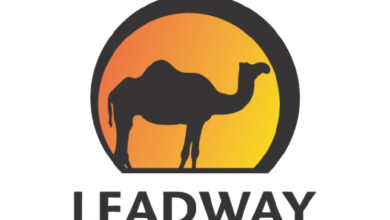Claims: Historical Development In Nigeria

By Ekerete Ola Gam-Ikon
It was Richelle Mead that said “History is important because it teaches us about the past. And by learning about the past, you come to understand the present, so that you can make educated decisions about the future.”
Today’s brouhaha about the poor and inconsistent management of claims in the insurance industry in Nigeria has its history, which I thought we should understand, so that like Richelle Mead said, “…We can make educated decisions about the future”!
Claims, as we know it, is that moment-of-truth in your insurance relationship, when you file the report of any accidents or incidents you were involved in and wait for your insurer to settle and pay.
While we know that sometimes Claims are denied or delayed, it had become the Unique Selling Proposition (USP) for insurers in Nigeria from the 90s. Prior to that time and since Nigeria’s Independence, insurers knew that prompt payment of Claims was the competitive advantage in the insurance industry but the ugly thinking that an insurer could improve its cashflow position by delaying payment of claims had crept into the discussions on strategy.
For the first time, in the late 70s and early 80s, and coinciding with the exit of foreigners as CEOs and top executives of insurance companies in Nigeria, policyholders that had claims began to experience delays and outright denials for payment of claims by insurers.
This is when TRUST, which had been (and still is) the hallmark of the relationship between the insurers and policyholders, was broken! Too many cases of denials and delays in claims were rampant as people gathered to discuss the disappearance of renowned Insurance Agents from different cities across the country.
Several ideas and thouhgts were considered towards rebuilding and regaining that trust, yet the insurance industry in Nigeria has been largely unsuccessful because the negative impact of those actions of the past continue to affect the decisions of policymakers and policyholders today.
Should the insurance industry leadership offer a wholesome apology for the unfortunate actions of its predecessors? Will that help the process of improving trust?
Rather than that the emergent market leaders boldly looked inwards and gave away what could be considered the elements for determining the basis for payment of claims.
Here is what I mean:
By 1990, when I joined the insurance industry, as a Comprehensive Motor Insurance Policyholder, you knew that you would earn ‘No Claim Discount’ every year you had to renew your policy upon having an accident-free previous year.
This NCD was structured as 10%, 20%, 33.3%, 40% and 50% in Years 1, 2, 3, 4 and 5 respectively and policyholders looked forward to it. However, as I earlier mentioned, to regain the trust of policyholders, insurers decided to offer the discount for the 5th year (50%) to them in their Zero Year!
Expectedly, there was uproar within the market as policyholders switched from insurers who were not giving 50% discount to those that did.
Now you know how we got to the prevalent trend of 5% of the value of the vehicle and increasingly until NAICOM intervened with the announcement of the new premium rates for Motor Insurance in December 2022.
And it is to be noted that most of the insurance companies that had to join the fray could not meet their claims obligations to policyholders. Coupled with the regulatory call for recapitalization in the same period, those insurers went into limbo and have remained financially distraught if they still have their operating licences.
Sometimes, honouring claims obligations is a matter of willingness to pay on the part of insurers and not ability. Some that can pay have been seen to be unwilling.
Yes, payment of claims to policyholders remain the main attraction of an insurer. Insurance Brokers that are poised to make their customers happy, while they enjoy their commissions in peace, will be committed to such insurers.
Even as we see technology enabling the insurance value chain, we are convinced that the insurtech firms that have solutions for prompt payment of Claims win go ahead of those that only enable buying.
Happily, in the Nigerian insurance market today, we have insurers that have started paying claims from Motor Insurance Policyholders in minutes!
Let’s continue to envisage that we can make insurance work for us, recognising that prompt payment of Claims is the best part of the insurance experiences to have.
If you have questions on your Claims, please direct them to me.
CONNECTING INSURANCE POLICY RENEWALS TO CLAIMS
Would you renew your insurance policy with the same insurer if your Claim was not satisfactorily handled though payment was ultimately made?
Would you renew your insurance policy with the same insurer if your Claim was not settled?
Would you renew your insurance policy with the same insurer if your Claim was settled but payment not yet made?
If your answers to these questions were NO, then you were never in a mutually beneficial relationship with your insurer. Your insurer ought to be very sensitive to your feelings as no reasonable individual or business owner will take the decision to make payment to another party that is owing him/her.
In many insurance companies in Nigeria, the process of renewals are generally handled differently from that of claims except where special interest is taken by Executive Management regarding the policyholder.
Certainly, some individuals and organizations are considered more important and significant than others by insurers and brokers, often based on the size of their premiums.
You (the policyholder) should not allow yourself to remain in an environment where you are not valued or considered important.
Policyholders that renew their insurance policies every year and have not reported any claim are the priority for insurers!
Yet, some insurers pursue those that have made claims to renew their insurance policies based on the information they have from the Insurance Brokers of the Policyholders.
So often, many individuals and organizations seek to revalue their properties at the point of renewals and are happy to pay additional premiums. This ensures that they receive compensation, in the event of claims, commensurate to the market value of their properties. Never miss the opportunity to do adequate insurance for your properties.
Renewals of your vehicles, houses, offices and equipment, business transactions should be in alignment with current market value to avoid being left with the short end of the stick in the event of claims.
Renewals are like inception of new insurance policies, most times, and require careful consideration. Take informed decisions.
Whenever you are uncertain or unable to act due to financial crunch, do not hold back, speak with your Insurance Broker or Consultant for possible solutions.
Hope this helps someone to renew his/her insurance policy despite the harsh economic climate.
NOVEMBER 2023 INSURANCE ADVISORY: CAN EVERYBODY BE INSURED?
At a presentation about 7 years ago, a participant asked “Is insurance for everybody?” The Presenter, a senior management executive of a leading insurance company, simply said “Yes, everybody can be insured!”
“Excuse me, it’s only those who can pay premium that can be insured”, observed an Insurance Professional in attendance.
This story, like many others, has created confusion for those who seek to know and understand insurance. Thus, to simplify it and ensure we make insurance work for us, I will go with the response from the Presenter “Yes, everybody can be insured!”
Here are my advices according to different age groups:
ADVICE 1: Ages 0-10
Children can be insured individually or as part of a group/family against accidents and incidents that may result in deaths or disabilities or need for medical care. Parents sometimes incept and pay for such insurance policies. It is advisable to have the children insured with affordable policies.
ADVICE 2: Ages 11-18
At this stage, additional insurance policies could be incepted by Parents and Guardians to ensure the education of the children are not interrupted due to your deaths or disabilities or loss of jobs. This is strongly advisable as the percentage of out-of-school children keeps increasing across Nigeria.
ADVICE 3: Ages 19-25
As maturing youths engaged in apprenticeship and early employment, you are most exposed to the vagaries of our societies with little experience on handling them. Even if you were not insured at previous stages of your lives, you are advised to embrace insurance. This is the right stage to consider Individual Life Assurance, preferably Endowment, that can readily earn you a ‘Millionaire status’ a decade from now. Many of you should like this advice.
ADVICE 4: Ages 26-35
This is the stage where you become the determinants of your fate. You consider marriage, dream projects, entrepreneurship, further education, investments and social impact. The need to be insured is probably highest at this stage as lifestyle changes to give you more responsibilities and opportunities. Having appropriate and adequate insurance coverages is strongly advisable at this stage.
ADVICE 5: Ages 36-45
Consider that the impact of your work would become more visible at this stage and attract more invitation for involvement in projects and investments that will sustain your future. You are advised to take insurance coverages not only for yourself but also for the interest of your family and businesses. You will need to think of what could happen to those who depend on you if the unexpected happens.
ADVICE 6: Ages 46-55
Can insurance protect your investments? Yes, if those investments are held in entities having assets and personnel. This is the stage where you are confronted with diverse risks and challenges probably in different domains. You are better advised to seek international insurance coverages for your health and life assurance policies with different companies. If you cannot afford these, be advised to at least settle for local policies despite inflation.
ADVICE 7: Ages 55-65
Retirement begins to require more attention at this stage and you are advised to give it priority, checking to ensure the status of your insurance policies are up-to-date. Many people have worked hard only to discover that their employers have not been committed to remittance of their contributions to statutory authorities. You are advised to verify the authenticity of any claims made, lest it becomes too late.
ADVICE 8: Ages 65-75
Your health will begin to take more priority of your time and wallet, so it is advisable to have appropriate insurance that would even address critical illnesses. And if there was no insurance towards funeral in the family, this would be a good time to have it.
ADVICE 9: Ages 75-85
Hopefully, you would since have moved your funds from Programme Withdrawals offered by your Pension Funds Administrators (PFAs) to Annuities of your preferred Insurer and enjoying some relative peace knowing that you are insured and assured.
ADVICE 10: Ages 85 and Above
You are practically left with Annuity that ensures you to receive payments till death. You are advised to have it long before now.
Generally, as you would have noticed, insurance seeks to give you a guaranteed position of financial strength in future. It is useful too in both wealth creation and wealth protection.
Let’s all avoid the regrets that creep up when we are better informed about insurance at the time we can no longer make it work for us.
May be you will share what you know now with your children and younger friends to encourage the next generation.
November is the month that provides towards our fulfilment by year end. Enjoy it!
THE DIFFERENCE BETWEEN INSURANCE BROKERS AND INSURTECH FIRMS
Insurance is increasingly in discussions around living standards and cost management for individuals and organizations respectively. New and creative responses are being provided for age-long questions, which are attracting digital natives to hope that they can finally take more risks in the cyberspace.
Personally, as an Advocate for more insurance in our lives, newer questions thrown at me have prompted answers that instigate too many ‘Whys’ than I can handle.
So, quite recently, after reading my write-up, a young professional cum entrepreneur in the logistics industry asked if I could tell him the “difference between insurance brokers and insurtech firms”.
I am therefore putting down more than what I told him as I believe many other individuals and business owners will learn and earn from this.
1. Insurance Brokers are professional intermediaries that provide services to clients (policyholders) and earn their commissions from premiums paid to insurance companies, while insurtech firms provide solutions offered through insurance companies to policyholders and enhance their insurance experiences;
2. Insurance Brokers are burdened by issues that their clients have with insurance companies namely terms and conditions of the policy, claims and renewals, while insurtech firms, through the partnership with insurance companies, would meet the clients to improve the solutions provided and ensure faster delivery of documents and claims;
3. Insurance Brokers are licensed by the regulator, National Insurance Commission (NAICOM) and are required to pay one percent of their commissions to NAICOM as Supervisory Levy, while insurtech firms as Partners of insurance companies earn from the number/volume of used cases recorded; and
4. Insurance Brokers and Insurtech firms are able to obtain Web Aggregators Licence from NAICOM to operate as platforms through which customers can reach several insurance companies to buy products. The Web Aggregators are not allowed to earn commission as Insurance Brokers but insurtech firms that operate as Web Aggregators are likely to have more customers than Insurance Brokers in the long run.
It is important to mention that insurtech firms through the partnership with insurance companies are now offering significantly cheaper products and fulfilling some of the needs of customers. For example, you can now pay for the insurance of your vehicle based on usage, while claims are settled in minutes! Yes, here in Nigeria.
With the introduction of Embedded Insurance by some insurtech firms, it will be interesting to see how they challenge traditional Insurance Brokers that cater for the big clients.
In the limit, we do not expect these differences to remain obvious as the Insurance Brokers are also establishing partnerships with insurtech firms.
As existing or potential policyholders, be aware and informed about these developments, which seek to create more inclusiveness regarding insurance and boost the experiences of all stakeholders.
Let me know what you think and be assured your questions and comments will be addressed.
Making insurance work for us is our reality.
EVERY BUSINESS MANAGES RISKS
It is my belief that every business is a risk management outfit. How you strategize and attract customers involves lots of risks, sometimes you succeed and sometimes you fail.
To succeed consistently means that you’re successful at effectively managing the risks your business enterprise meets. Managing the risks arising from the people: Shareholders, Board, Management, Suppliers, Service Providers and above all, Regulators and Customers, can be most challenging not to talk about the environment: Natural and Man-made.
Where insurance comes in, you would agree is less significant, by your assessment but critical by the assessment of the government that made the insurance laws.
The responsibility for the welfare and security of citizens is core in governance and insurance remains one of the ways to mitigate the risks to lives and livelihoods.
In times past, we have seen governments pay out monies to relieve victims of fire outbreak, flood disasters, destruction of farmlands and livestock, collapse of buildings and devastating road accidents. However, with discussions around the economic recessions, scarcity of funds and high debt profiles, there have been growing talks about the role of insurance!
Insurance pays claims to reinstate businesses and restore confidence in the environment. It works!
However, over 199m Nigerians and hundreds of thousands of registered enterprises, large and small remain uninsured and managing their risks through orthodox and archaic methods.
Some are waiting to be enlightened and educated on the benefits of insurance while others continue to resist the urge of giving money to insurers to fund their lifestyles.
Methink if you can do what your insurers do when you have claims, just pay, then you are fine and so will your lives and businesses be.
Considering the monopolistic position of some organizations and products or services, we just cannot overlook what they are doing about managing their risks. We should and are interested.
Too many lives have been lost, too many houses have been burnt down or collapsed and we can provide compensation from insurance companies to the victims even faster than governments will do.
Remember, we are still looking at how we can make insurance work for us.
Questions and comments that will evoke better understanding of the supremacy of insurance as a risk management tool are welcome.
HAVE INSURANCE TO PROTECT VISITORS TO MY HOME?
We all need Insurance ABC (Agents, Brokers and Consultants). They come at no costs. Just get one or two for yourself, your family and your business!
It helps to have one that you can call when you have questions like the one above.
Just imagine, as we’ve heard it happened elsewhere, that you have visitors to your home and whilst entertaining them, one of the children slips and falls, getting terribly injured.
He is rushed to the hospital for medical attention and discharged with high bills to pay. Being your hospital, you allow everyone to leave while you wait to sort out the bill.
Your Health Insurance does not cover this, so you’re required to dole out hundreds of thousands of Naira. You’re able to pay but with discomfort, pulling funds from different accounts to settle such unplanned and unexpected expenses.
Hence, the question: “Can I have insurance to protect visitors to my home, should the unexpected occur?” The answer is: “Yes. Your Home Insurance also covers injuries to visitors in your home.”
You probably didn’t know this, hence the need to talk more with your Agent, Broker or Consultant on the questions that come to your minds.
Insurance will always be, that product bought by you for the benefit of others and at a time you might be unable to cover the expenses arising from the unexpected events.
We can only continue thinking of how we can make insurance work for us. Hoping this has stimulated your minds.
Enjoy the first weekend November has brought. The best is ahead.
IS SUNDAY A RISK-FREE DAY?
Quite interestingly, from where I see it, the answer is NO! Risks do not set aside any day of the week they wouldn’t step out, after all, they exist with and amongst us.
We are, unfortunately, the bearers of the risks we seek to mitigate and manage whether we want to accept it or not. It is our actions and inactions that create these risks.
You wish someone wouldn’t put up a sloppy attitude that allows an accident on the road or fire incident in a building. Or you remembering that you left the airconditioner in the office on last Friday, but chose not to go back only to be informed today that the building was ablaze.
Or hoping that what happened between your close associate and her insurer that couldn’t pay her claim after several promises, wouldn’t happen to you without calling to check the financial state of yours.
Some businesses thrive more today while others use today to plan the week, so I thought it was important to be part of that your plan. What did you think you should insure but don’t yet have the money to pay the premium?
Never consider acquiring an asset without adding the money for its insurance to the total sum to be expended on it. Don’t be like a friend who bought a highly valued brand new vehicle and did Third Party Motor Insurance for it coupled with a lowly paid Driver!
Sorry to have chewed so much into your precious Sunday. Let’s say it is Sunday Insurance, when you can also call to report any claims and your insurer will respond😊
It is now 24/7 and digitally operated. Remember, we are striving to make insurance work for us.
Ekerete Ola Gam-Ikon, an insurance professional, writes through +234-802-585-0344 and olagamola@gmail.com





